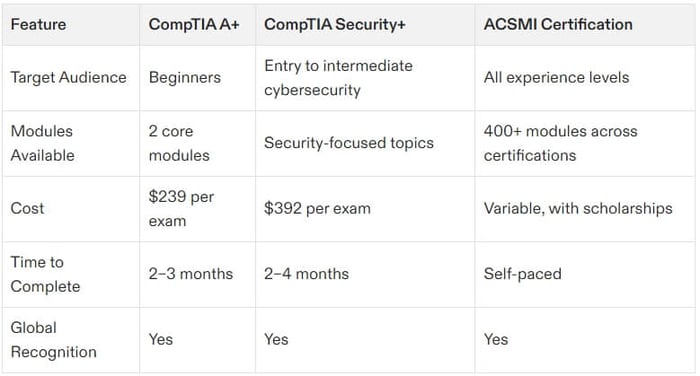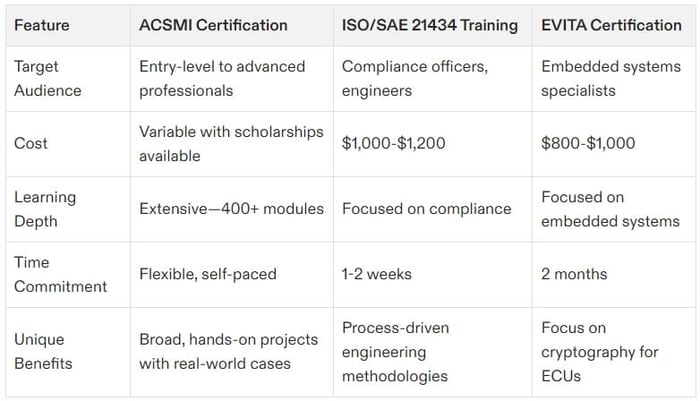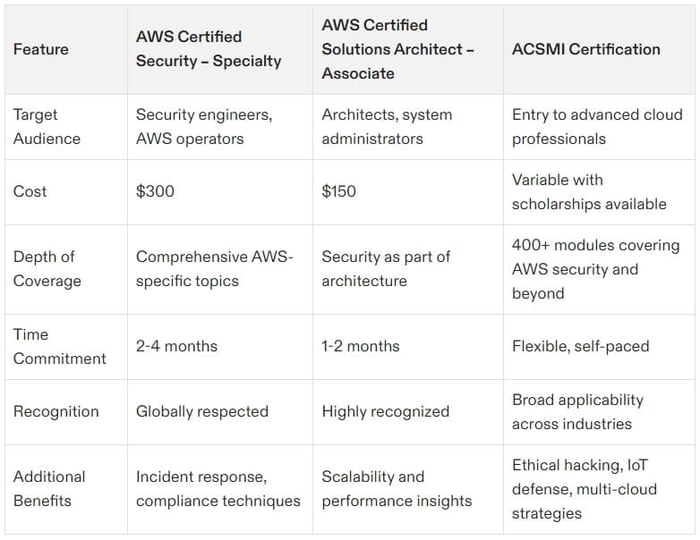Table of Contents
As the Philippines accelerates its digital transformation, the demand for skilled cybersecurity professionals continues to rise. With cyber threats becoming more frequent and sophisticated, the need for certified experts has never been greater. Obtaining a Cybersecurity Certification Exam Cost in the Philippines equips you with the technical knowledge and credibility necessary to succeed in this competitive and rewarding field.
Whether you’re an aspiring ethical hacker, a seasoned IT specialist, or someone looking to switch careers, a cybersecurity certification can be the key to unlocking new opportunities.
Why Cybersecurity Certification in the Philippines Is Critical
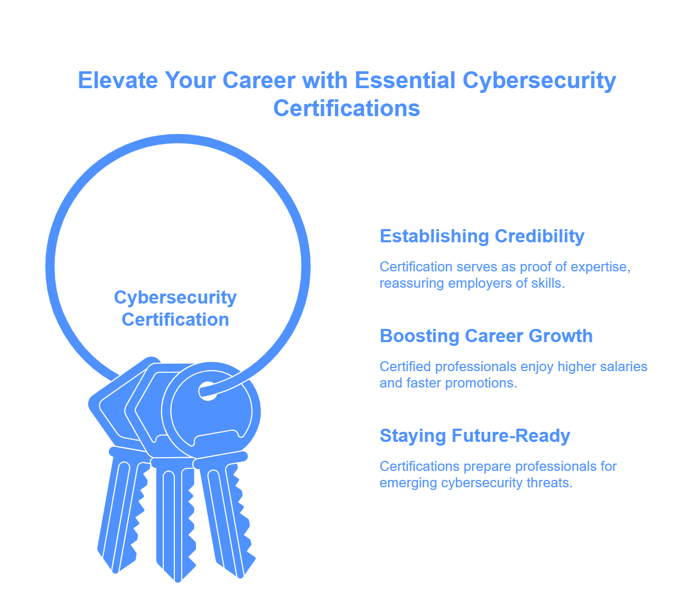
Establishing Credibility
A recognized certification validates your expertise in safeguarding critical data and systems. It serves as proof of your skills, which reassures employers, making you a preferred choice for job roles in the cybersecurity field.
Boosting Career Growth
With cybercrime incidents increasing in the Philippines, businesses and governments are prioritizing cybersecurity talent. Certified professionals often enjoy higher salaries, faster promotions, and access to specialized roles. Certification is often the differentiator between two equally qualified candidates.
Staying Future-Ready
Cybersecurity certifications ensure you are equipped to handle emerging threats. For instance, programs like ACSMI’s certification prepare candidates for cutting-edge challenges such as AI-based threats, blockchain vulnerabilities, and much more.
Understanding Cybersecurity Certification Levels
Cybersecurity certifications can be categorized into beginner, intermediate, and advanced levels, each designed to cater to different career goals and expertise levels.
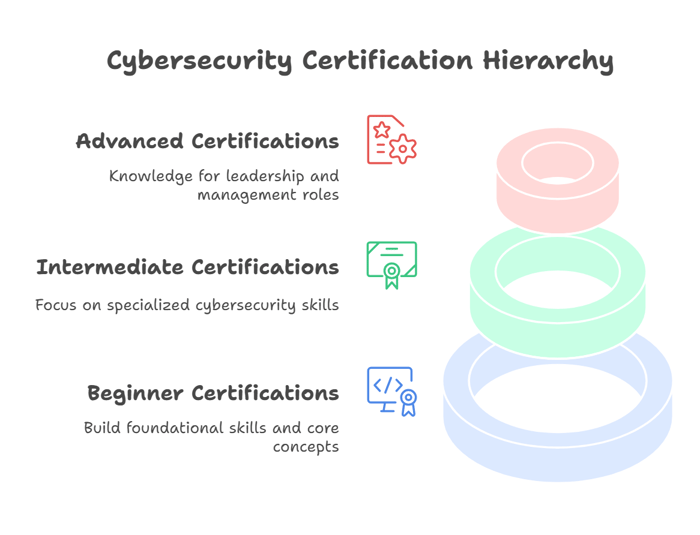
1. Beginner Certifications
Overview: These certifications are designed for individuals with limited knowledge of IT and cybersecurity. They help build foundational skills and introduce core concepts like risk management and attack prevention.
Popular Options for Beginners:
CompTIA Security+: Known for its vendor-neutral syllabus, this certification is often a launching pad for cybersecurity careers.
ACSMI Entry Modules: Tailored specifically for Philippine professionals, these modules teach key skills such as basic malware analysis and network monitoring. Explore ACSMI certification here.
2. Intermediate Certifications
Overview: Intermediate certifications help professionals focus on specialized skills such as penetration testing, forensic analysis, and secure code development.
Popular Intermediate Options:
Certified Ethical Hacker (CEH): This certification is ideal for those looking to explore advanced penetration testing techniques and exploit vulnerabilities in networks.
ACSMI Intermediate Program: This program offers in-depth courses in areas like cloud security governance and IoT system monitoring. Learn more about ACSMI certification.
3. Advanced Certifications
Overview: Advanced certifications provide the knowledge to manage leadership roles, such as overseeing entire cybersecurity operations or implementing robust defense systems at an organizational level.
Popular Advanced Options:
Certified Information Systems Security Professional (CISSP): This comprehensive certification is globally valued for high-level positions such as CISOs or cybersecurity architects.
ACSMI Advanced Tracks: ACSMI offers over 400 modules that deep-dive into advanced topics such as threat intelligence and quantum encryption.
Career Opportunities After Cybersecurity Certification in the Philippines
Earning a cybersecurity certification in the Philippines unlocks numerous lucrative and fulfilling career paths across industries like finance, healthcare, IT, and government. Here’s a closer look at some prominent roles, their responsibilities, and salary expectations:
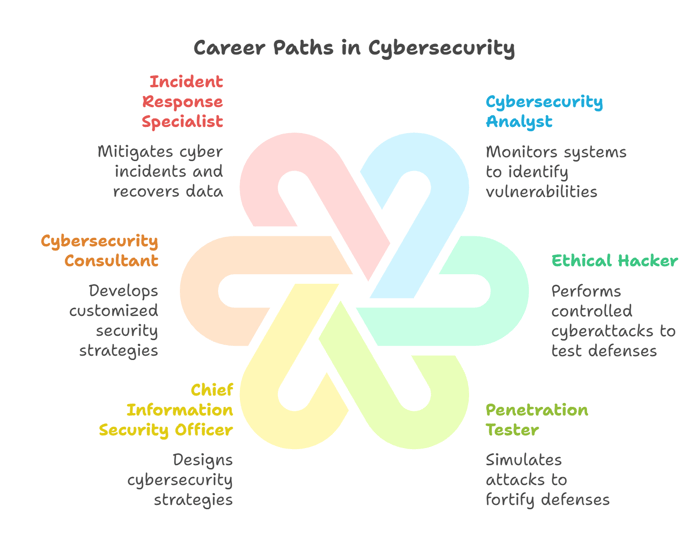
Cybersecurity Analyst
Role: Cybersecurity Analysts monitor networks and systems to identify vulnerabilities and mitigate security threats.
Salary Range: PHP 500,000–900,000 annually
Ethical Hacker
Role: Known as "white-hat hackers," Ethical Hackers perform controlled cyberattacks to evaluate an organization’s defenses.
Salary Range: PHP 800,000–1.5 million annually
Penetration Tester
Role: Penetration Testers simulate cyber-attacks to identify vulnerabilities and provide solutions to fortify defenses.
Salary Range: PHP 900,000–1.8 million annually
Chief Information Security Officer (CISO)
Role: CISOs design and implement cybersecurity strategies to protect an organization’s assets.
Salary Range: PHP 2.5 million–4.5 million annually
Cybersecurity Consultant
Role: Consultants work with clients to develop customized security strategies, evaluate risks, and implement security frameworks.
Salary Range: PHP 600,000–1.2 million annually
Incident Response Specialist
Role: Incident Response Specialists mitigate cyber incidents, recover compromised data, and enhance preventive measures.
Salary Range: PHP 750,000–1.3 million annually
Security Architect
Role: Security Architects design robust security infrastructures that safeguard against evolving threats.
Salary Range: PHP 1.2 million–2.5 million annually
Why Certification Matters for Career Growth
Certifications offer more than just a stepping stone into cybersecurity roles—they demonstrate your commitment to professional growth and provide concrete proof of your expertise. Employers in the Philippines value candidates who understand global standards, demonstrate specialized skills, and stay updated on the latest cybersecurity trends.
Certified professionals typically progress faster in their careers, as their qualifications distinguish them in a competitive job market. With the rise of new cyber threats and an expanding digital economy, now is the ideal time to invest in a cybersecurity certification in the Philippines.
Preparing for Cybersecurity Certification
Before embarking on your certification journey, effective preparation is key. Here's what to consider:
Choose the Right Certification for Your Goals: Assess your proficiency level (beginner, intermediate, advanced) to select the right certification program.
Study Relevant Material: Use official study guides and ACSMI’s comprehensive coursework to ensure thorough preparation.
Engage with Hands-On Labs: Practical exercises help you understand real-world applications of cybersecurity concepts.
Join Local Tech Communities: Networking with other professionals can accelerate your learning and provide insights into certification exams.
ACSMI Cybersecurity Certification
ACSMI offers a comprehensive suite of courses and certifications that cover everything from technical knowledge to managerial leadership. With over 400 modules, it provides the expertise necessary to tackle modern cybersecurity challenges.
Final Thoughts
Investing in a cybersecurity certification in the Philippines is one of the smartest decisions for both aspiring and experienced professionals. With the Philippine tech industry rapidly expanding, certified professionals are in high demand to counter the growing threat landscape. ACSMI certification stands out as a reliable option, offering flexible, real-world training paired with an expansive library of modules. By obtaining the right certification, you not only enhance your skill set but also secure a future in an industry poised for massive growth.
FAQs on Cybersecurity Certification in the Philippines
Which certification should beginners in the Philippines start with?
For beginners, certifications like CompTIA Security+ or ACSMI’s foundational modules offer a solid understanding of core cybersecurity concepts.
Are certifications recognized globally if obtained in the Philippines?
Yes, certifications like ACSMI and CompTIA Security+ are globally recognized and enhance your career mobility worldwide.
What is the cost of a cybersecurity certification in the Philippines?
Costs vary depending on the level, with beginner certifications typically ranging between PHP 20,000 and PHP 50,000, while advanced certifications may exceed PHP 100,000.
How often must certifications be renewed?
Most certifications are valid for two to three years, after which periodic updates or additional training may be required.
What practical skills are taught in ACSMI certification programs?
ACSMI offers lab-based simulation training in areas such as incident response, IoT security, and advanced ethical hacking.
Is online learning effective for cybersecurity certification in the Philippines?
Yes, providers like ACSMI offer interactive platforms with real-world labs to simulate actual threat scenarios, ensuring quality and effectiveness in learning.
How do certifications impact salaries in the Philippines?
Certified professionals earn significantly more than non-certified counterparts due to their proven expertise.
Are scholarships available for cybersecurity certifications?
Yes, some institutions in the Philippines offer scholarships, subsidies, or employer-sponsored certification programs.



